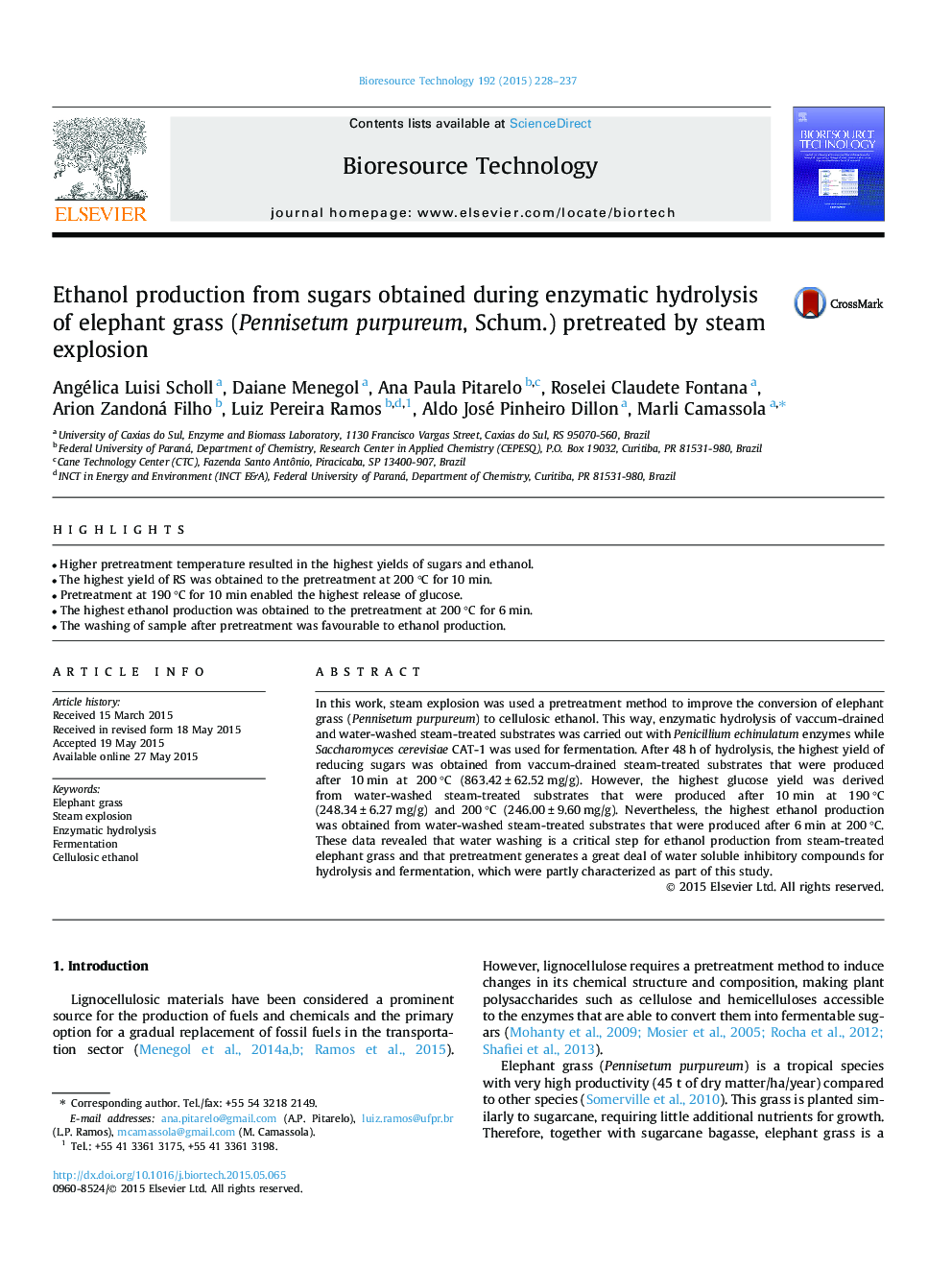| Article ID | Journal | Published Year | Pages | File Type |
|---|---|---|---|---|
| 7074403 | Bioresource Technology | 2015 | 10 Pages |
Abstract
In this work, steam explosion was used a pretreatment method to improve the conversion of elephant grass (Pennisetum purpureum) to cellulosic ethanol. This way, enzymatic hydrolysis of vaccum-drained and water-washed steam-treated substrates was carried out with Penicillium echinulatum enzymes while Saccharomyces cerevisiae CAT-1 was used for fermentation. After 48 h of hydrolysis, the highest yield of reducing sugars was obtained from vaccum-drained steam-treated substrates that were produced after 10 min at 200 °C (863.42 ± 62.52 mg/g). However, the highest glucose yield was derived from water-washed steam-treated substrates that were produced after 10 min at 190 °C (248.34 ± 6.27 mg/g) and 200 °C (246.00 ± 9.60 mg/g). Nevertheless, the highest ethanol production was obtained from water-washed steam-treated substrates that were produced after 6 min at 200 °C. These data revealed that water washing is a critical step for ethanol production from steam-treated elephant grass and that pretreatment generates a great deal of water soluble inhibitory compounds for hydrolysis and fermentation, which were partly characterized as part of this study.
Related Topics
Physical Sciences and Engineering
Chemical Engineering
Process Chemistry and Technology
Authors
Angélica Luisi Scholl, Daiane Menegol, Ana Paula Pitarelo, Roselei Claudete Fontana, Arion Zandoná Filho, Luiz Pereira Ramos, Aldo José Pinheiro Dillon, Marli Camassola,
